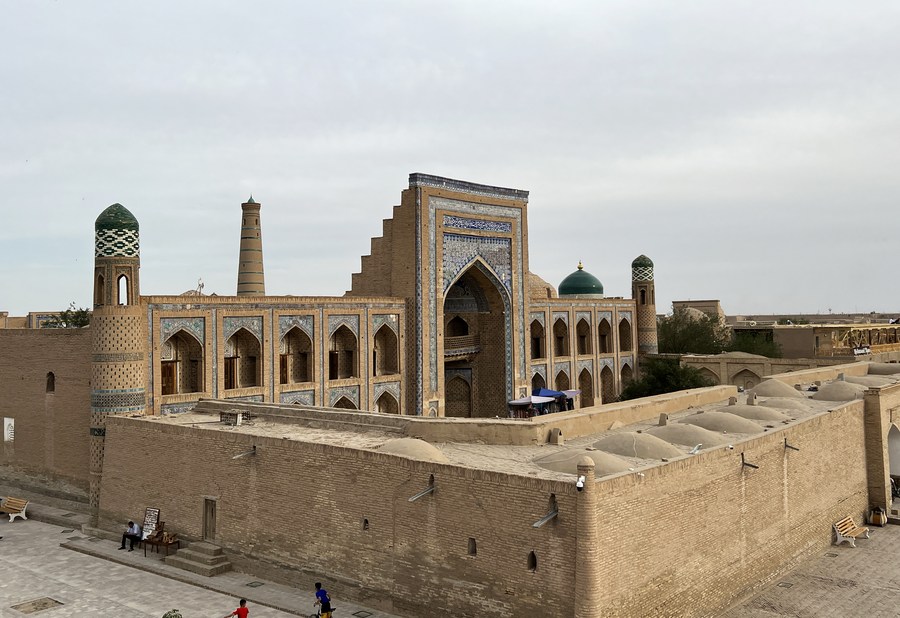Xiplomacy: China-Central Asia cooperation: Palmy past, rosy future


HANDSHAKE OF CULTURES
On a refreshing autumn day in September 2022, Xi held talks with Uzbek President Shavkat Mirziyoyev at the International Conference Center in Samarkand, during which a small gift was presented by China to Uzbekistan. The gift turned out to be a miniature of the ancient city of Khiva, which celebrates the two countries' joint efforts to restore the cultural heritage of the ancient Silk Road.
"The preservation and restoration of historical sites in Khiva, a project launched during my visit to Samarkand in 2013, has been successfully concluded, further augmenting the charm of this ancient city," Xi said in a signed article published on Uzbek media ahead of his state visit to Uzbekistan.
"I'd give a bag of gold to visit Khiva," goes a Central Asian saying.
Located in southwestern Uzbekistan, Khiva, a shining pearl on the ancient Silk Road, was built in the 10th century and inscribed in the UNESCO World Heritage Site list in the 1990s. However, due to disrepair, some ancient buildings of the cultural relic sustained damage in varying degrees.
Following Xi's Uzbekistan visit in 2013, China and the Central Asian country announced they would be working together to restore the Amir to'ra madrasasi, the Hasan Murod Qushbegi Mosque and their surroundings in Khiva. A Chinese team arrived at the site in May 2014, and with expertise and dedication to preserving history, the team members had overcome difficulties and successfully completed the restoration work with a minimal intervention approach.
"Our Chinese colleagues do their work very carefully, with love and with all their soul, and try to keep everything in its original form," said Abdullayev Masharib Saydamatovich, deputy director of Center for Promotion of Science of Uzbekistan Academy of Sciences. "Cultural cooperation with China does not stop there. It continues, and restoration work has been singled out as one of the main directions."
True, joint restoration on Khiva only stands as one of the many epitomes of cultural and people-to-people exchanges between China and Central Asian countries. Another dazzling example is the Luban Workshop in Dushanbe, a Chinese vocational workshop program training talents in Tajikistan. The workshop, officially going into service in November 2022, is the first of its kind in Central Asia.
"China's Luban Workshop is recognized as an international vocational education brand worldwide. We believe that Luban Workshop will be of great help to Tajik Technical University in training talents in measurement, green energy and heating, and can promote cooperation and exchanges between the two universities in all aspects," said Shahriyor Sadullozoda, vice rector of Tajik Technical University.























